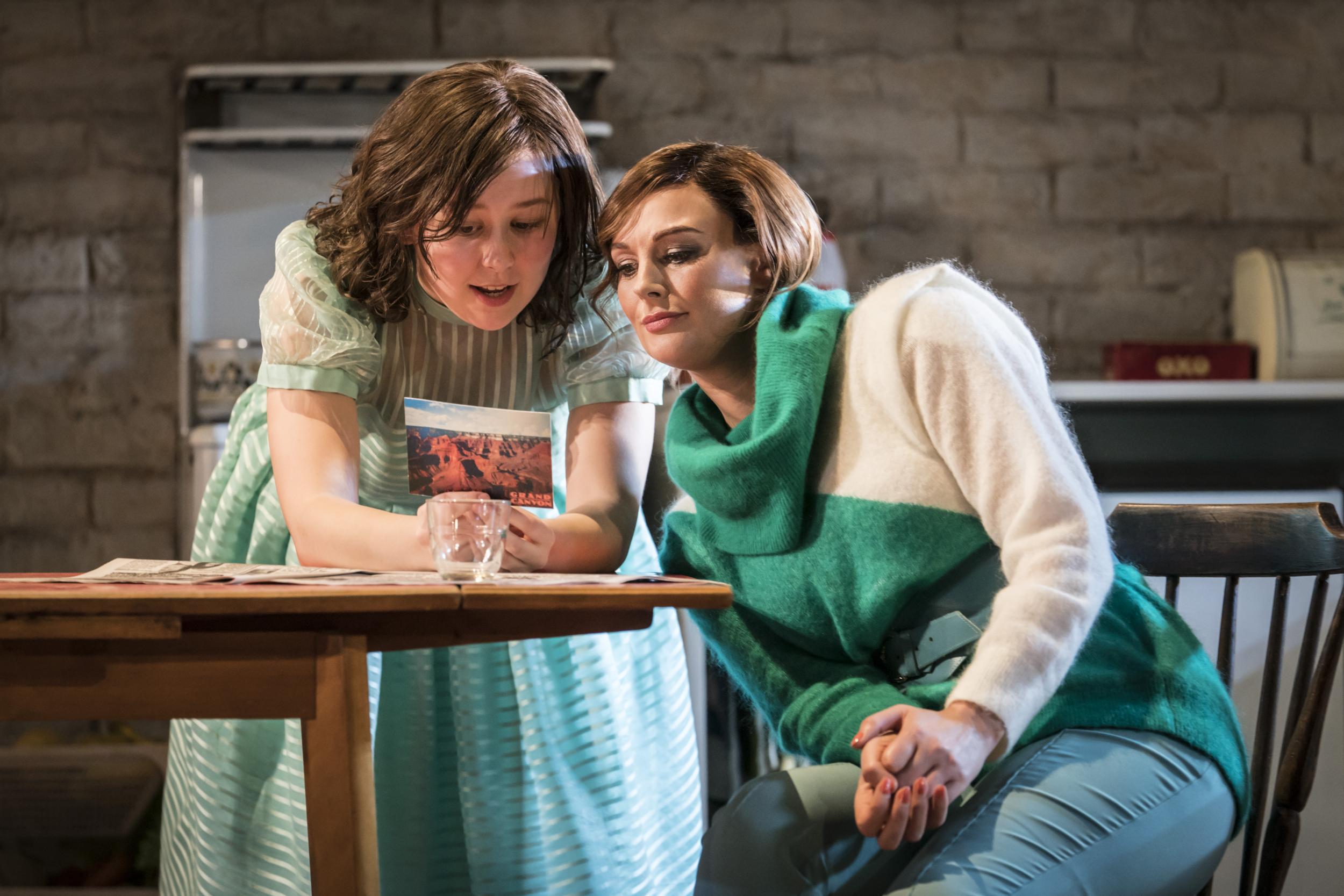Top Girls review, Lyttelton: ‘A work of genius that will never date’
Both Caryl Churchill’s classic and Ibsen’s ‘A Doll’s House’ woke their audiences up to the necessity of a feminist movement and also to the inescapable pain that comes from progress

One of the wonders of Top Girls, the Caryl Churchill classic first seen in 1982, is that it’s at once utterly original and yet shares (in a salutary way) attributes with that earlier, piercingly penetrating play that accelerated the women’s movement: Henrik Ibsen’s A Doll’s House (1879). Both of these pieces woke their audiences up to the necessity of a feminist movement and also to the inescapable pain that comes from progress. Will there ever come a day when women do not have to pay a steep price for the simple right to slam the doll’s house doors on the infantilising love of smug, purblind spouses or – in the case of Churchill’s superlative play that looks at the 1980s-vintage “success story” of Marlene – no longer worry that progress for some women may entail, in intractably difficult ways, the disadvantaging of others? Ways that were paradoxically heightened by the election of Mrs Thatcher, our first female prime minister.
A pair of shoulder pads waiting to happen, Marlene forsook her rural working-class home for the bright lights of the city when she was 17, leaving her illegitimate baby, Angie, to her upwardly stationary sister. Angie has grown up with learning difficulties so the lottery of luck (which obviously disadvantages women disproportionately) has not fallen in the young girl’s favour. By some instinct (and also because of a conversation she may have overheard) Angie has an obscure hunch that her adored “aunt” may be closer to her in truth and seeks her out at the “Top Girls” employment agency of which Marlene has just become the managing director. Her welcome is as insincere as poor Angie’s overture is needy.
This Top Girls is the most dazzling and acute revival that the National Theatre has mounted since Dominic Cooke’s transcendent production of Follies. We’re in luck because Top Girls is in repertoire now, with the second run to be staged in the Olivier of Follies. Happy days are here again.
Directed by Lyndsey Turner, Top Girls has never seemed more hilarious, or wrenching. Take the first scene, where Marlene throws a party in a restaurant to celebrate her promotion, welcoming remarkable women of various era, races, and degrees of PC (measured by today’s standards). It is one of the most profoundly funny sequences in drama, and never more creasingly so than here.
The women are fascinated by each other but behave with that slightly fake-looking avidity that some women go in for at all-girls’ events, as if lacking the collective confidence that they can fully pass the female-only Bechdel Test. How inspired of Turner to direct the scene that way, and to do so without coarsening it into campness.
I don’t see how Liv Hill could be better as Angie, virtually stalking her biological mother Marlene with a hilarious and harrowing combination of dangerousness and need. Katherine Kingsley as Marlene is likewise perfection at getting across how her character both acknowledges this ungainly flesh of her own flesh as an unavoidable thorn in her side, while at the same dismissing her as a Thatcher-era write-off. A work of genius then that will never date.
Join our commenting forum
Join thought-provoking conversations, follow other Independent readers and see their replies
Comments